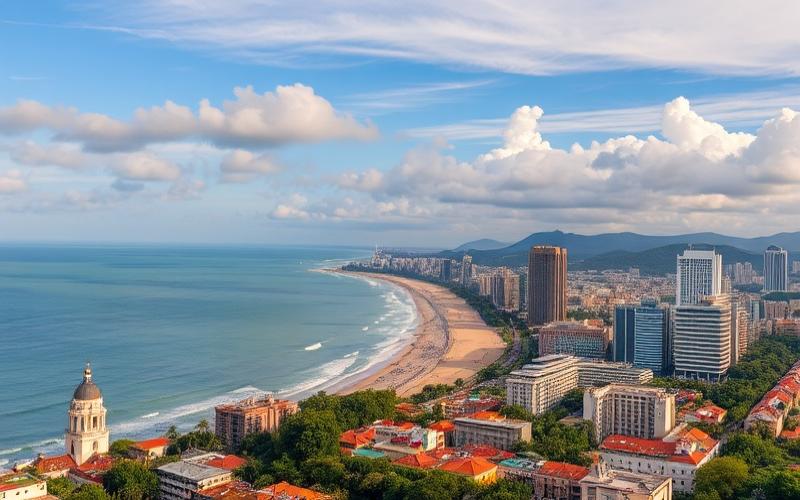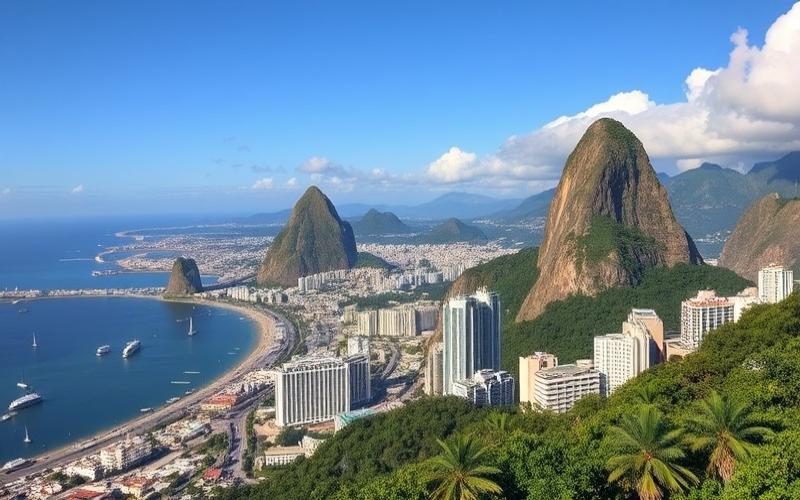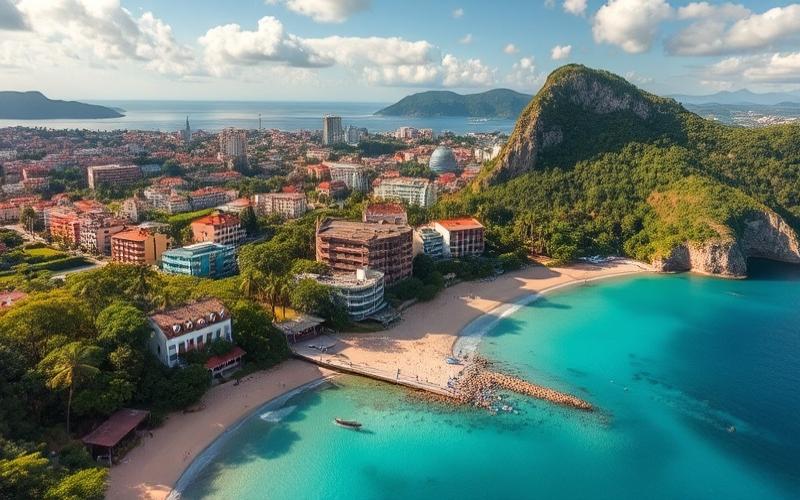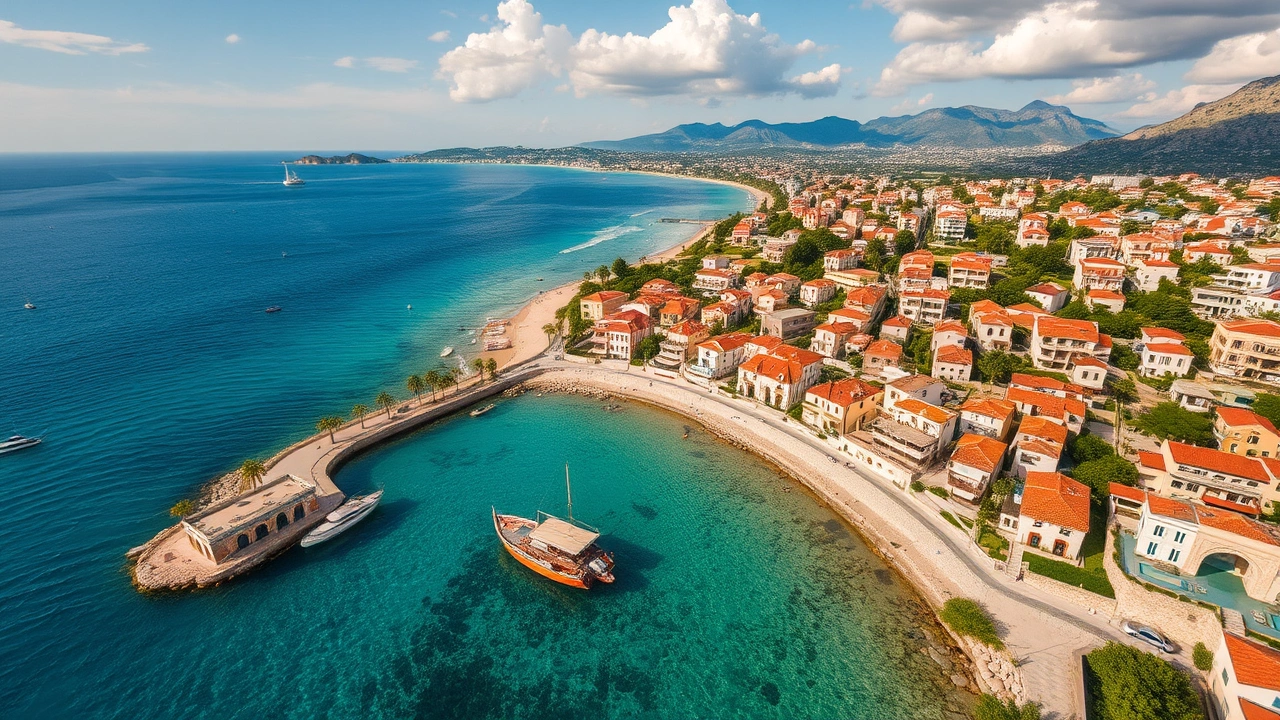
 Published on and written by Cyril Jarnias
Published on and written by Cyril Jarnias
Brazil, a land of cultural and ethnic diversity, has undertaken various efforts to protect its inhabitants from discrimination, reflecting a commitment to equal rights for all. Despite these advances, challenges persist, and expatriates living in Brazil often face unique obstacles that require a thorough understanding of the country’s anti-discrimination laws.
This article explores how these laws play a crucial role in the legal framework to defend the rights of expatriates and addresses the available recourse mechanisms for those who feel discriminated against. By highlighting legal protections and necessary procedures, it aims to inform and guide expatriates in their efforts to ensure equal treatment and respect in their new homeland.
Protection Mechanisms Against Discrimination in Brazil
Legal and Institutional Mechanisms to Combat Discrimination in Brazil
Brazil has a robust legal framework to combat discrimination, primarily based on the Federal Constitution, which prohibits any form of discrimination affecting fundamental rights, particularly regarding equality before the law, wages, access to employment, and individual freedoms. The constitutional text specifies that “the law shall punish any discrimination that violates fundamental rights and freedoms” and classifies racism as an imprescriptible and non-bailable crime.
Key Relevant Anti-Discrimination Laws
| Law / Provision | Scope | Specifics |
|---|---|---|
| Federal Constitution | All citizens (nationals or foreigners) | Equality before the law; prohibition of racism |
| Law 9.029/1995 | Labor relations | Prohibits discriminatory practices related to gender, origin, race, family status, or disability |
| Penal Code | General offenses | Defines penalties for discriminatory crimes |
| Specific legislation (LGBT) | Sexual orientation / gender identity | Strong jurisprudential application but slow legislative progress |
Application to Expatriates Living in Brazil
- Expatriates benefit from the same protections as Brazilian citizens against all forms of discrimination.
- Any victim – including a foreigner – can file a claim with civil or criminal courts to assert their rights.
- Available recourse includes:
- Filing a complaint with police or judicial authorities
- Petitioning the public prosecutor’s office
- Civil lawsuits for moral damages
Illustrative Examples
Recent rulings have condemned companies that refused hiring based on ethnic criteria or due to migrant status.
In the LGBT+ field, even though some bills struggle to advance politically (example: Bill No. 580/2007 on same-sex marriage), case law regularly recognizes discriminatory situations in access to certain civil rights.
Role of NGOs and Support Platforms
Many non-governmental organizations such as AllOut play an active role in providing legal, psychological, or social support to foreign victims.
Digital platforms also allow for anonymous reporting of discriminatory acts and referral to specialized assistance.
Non-exhaustive list of committed actors:
- AllOut (LGBTQIA+ rights)
- National Committee for Refugees (CONARE)
- Ethos Institute
Current Challenges and Limitations
Challenges encountered:
- Difficulty enforcing certain laws in a context marked by judicial delays
- Persistent cultural biases against visible/migrant minorities
- Language barriers sometimes limiting effective access to mechanisms
Legal limitations:
- Gaps in some specific protections despite broad constitutional recognition
- Frequent lack of targeted information for newly arrived expatriates
Potential Avenues to Strengthen Anti-Discrimination Protection
- Accelerated adoption of inclusive legislative bills stalled in parliament.
- Better intercultural training for public officials serving foreign clients.
- Increased public funding for specialized NGOs.
The Brazilian system thus offers a solid but improvable foundation to effectively protect all residents from discrimination — including expatriates — through an evolving legal arsenal combined with a dynamic network of associations.
Good to know:
Expatriates in Brazil can turn to the Ministry of Public Labor for reporting discrimination cases, and organizations like the NGO Global Justice offer resources and legal support. However, despite Article 7 of the Constitution explicitly prohibiting discrimination, the lack of visibility and funding for these mechanisms often limits their effectiveness.
Foreigners’ Rights in Brazil Regarding Discrimination
The legal measures implemented in Brazil to protect foreigners against discrimination are based on several fundamental texts and specific laws.
- The Federal Constitution of Brazil explicitly prohibits all forms of discrimination, particularly in its Article 5, which makes the practice of racism an imprescriptible and non-bailable crime.
- The Afonso Arinos Law (1951) was one of the first anti-discrimination laws adopted in Latin America. It severely punishes any segregation based on race or color.
- The Racial Equality Law (Law No. 12.288/2010) aims to guarantee equal treatment and protection of individual, collective, and ethnic rights of Black people, while combating all forms of ethnic intolerance.
Concrete Examples of Anti-Discrimination Laws Applicable to Expatriates:
- The Brazilian Labor Code (CLT) expressly prohibits any distinction based on gender, ethnicity, nationality, or age in the professional field (equal pay for equal work). It also provides that any employee victim of wage discrimination can obtain moral compensation.
- The recent Brazilian wage equality law imposes enhanced salary transparency obligations on both local and international companies present in Brazil and allows discriminated employees to demand compensation.
| Law / Provision | Protected Area | Specifics |
|---|---|---|
| Federal Constitution | All | Racism = imprescriptible crime |
| Afonso Arinos Law | Race / color | First anti-racism law; criminal penalties |
| Racial Equality Law | Ethnicity | Real equality; fight against ethnic intolerance |
| Labor Code | Employment | Non-discrimination based on origin/nationality |
Legal Recourse Available for Foreign Victims of Discrimination:
- File a complaint with local authorities (civil or federal police).
- Petition the public prosecutor’s office or competent civil courts to obtain compensation.
- Receive support from specialized non-governmental organizations such as Global Justice or Conectas Human Rights, which provide free legal assistance to victims of abuse and discrimination.
Typical steps to follow:
- Gather written evidence/testimonies related to the discrimination suffered
- File a complaint with the competent authorities
- Contact a local specialized NGO if assistance is needed
- Follow the judicial case until its resolution
Persistent Challenges Despite These Laws:
- Difficulty in real access to justice for many foreign victims; sometimes lack of specialized lawyers.
- Low awareness among some judges who still underestimate concrete manifestations of racism or other intersectional discriminations (e.g., religion + origin).
- Occasional dissolution of public structures dedicated to effectively promoting racial equality hinders some institutional advances.
Efforts undertaken to strengthen application & awareness:
- Regular campaigns led by civil society aimed at training judicial personnel and informing expatriates about their effective rights.
Recurring problems identified:
– Uneven application across regions/private establishments,
– Occasional lack of human resources in public agencies,
– Subtle cultural persistences preventing full integration,
– Increased need for legal education among foreign communities settled in Brazil.
Legal protection thus exists but requires permanent vigilance regarding its effective implementation for all—including foreigners—and remains dependent on both political will and local associative mobilizations.
Good to know:
Brazil applies robust anti-discrimination laws, such as the Federal Constitution and the Racial Equality Law, which provide expatriates with legal recourse, including through specialized police stations and dedicated NGOs. However, despite these protections, increased awareness and rigorous enforcement remain necessary to overcome persistent challenges.
Available Recourse for Expatriates Victim of Discrimination
Legal and administrative mechanisms to support expatriates victim of discrimination in Brazil
The fight against discrimination in Brazil relies on a set of legislative texts and institutional mechanisms, open to all persons on the territory, including expatriates.
Main Applicable Laws:
- Federal Constitution: Explicitly prohibits any form of discrimination based on race, color, national origin, religion, sex, age, disability, sexual orientation, political or philosophical opinions, and other statuses. It guarantees full equality before the law for all, including foreigners residing in Brazil.
- Penal Code: Criminalizes discriminatory acts, particularly those related to racism, xenophobia, or other protected grounds. Offenses can lead to criminal penalties.
- Labor legislation (CLT): Prohibits any discrimination in the professional field, whether for hiring, remuneration, promotion, or termination of employment. Equal pay “for equal work” is explicitly provided, without distinction of gender, ethnicity, or nationality.
| Legal Text | Scope | Examples of Protections |
|---|---|---|
| Federal Constitution | General | Prohibition of all discrimination |
| Penal Code | Criminal | Racism, xenophobia, homophobia |
| Labor Code (CLT) | Labor/wages | Discrimination in hiring, wages |
| Local/state/municipal laws | Specific (some states/cities) | Sexual orientation, religion, etc. |
Competent Institutions:
- Ministry of Public Labor (MPT): Independent authority responsible for receiving and processing complaints of discrimination in the workplace. It can investigate, propose mediations, recommend administrative sanctions, and initiate legal proceedings.
- Public Defender’s Office (Defensoria Pública or human rights defense agencies): Offers free legal assistance, particularly for victims of discrimination. These bodies can represent victims in court or in mediation processes.
Complaint Filing Procedure and Possible Recourse:
Filing a Complaint:
- Online or in person with the Ministry of Public Labor for employment-related issues.
- With police stations for criminally punishable discriminatory acts (racism, violence, etc.).
- Directly with human rights defense institutions for legal support.
Available Recourse:
- Mediation: Attempt at amicable resolution supervised by a competent authority.
- Administrative sanctions: Fines, injunctions to cease discriminatory practices, sanctions against the employer or perpetrator.
- Judicial procedures: Legal action to obtain compensation (damages, reinstatement, etc.) or conviction of the perpetrator.
- Criminal sanctions: In case of serious acts (racism, homophobia, etc.), possibility of initiating criminal proceedings.
Complementary Support:
- Non-governmental organizations (NGOs): Several Brazilian and international NGOs provide psychological, social, and legal support to expatriates victim of discrimination.
- Consulates and embassies: Can provide institutional support, refer to local mechanisms, and assist in administrative and legal procedures.
Examples of active NGOs:
- Ethos Institute
- Conectas Human Rights
- Gay Group of Bahia (for LGBT+ issues)
- SOS Racism
Summary of Steps for Expatriates Victim of Discrimination:
- Identify the competent body (MPT, police, Public Defender, NGO, consulate)
- Gather evidence (testimonies, documents, messages, etc.)
- File the complaint according to the appropriate procedure
- Monitor the case progress (mediation, administrative or judicial procedure)
- Seek legal and psychological support if necessary
⚠️ Expatriates have access to almost all recourse available to Brazilian citizens, subject to their regular residence status.
Good to know:
Expatriates victim of discrimination in Brazil can file complaints with the Ministry of Public Labor or the Public Defender’s Office; recourse such as mediation or judicial procedures are possible, and additional support can be obtained through local NGOs or consulates.
The Role of the Expatriate Protection Commission in Brazil
The primary mission of the Expatriate Protection Commission in Brazil is to defend the rights of expatriates, ensuring their protection against discrimination, access to fundamental rights, and respectful integration of their status.
Actions for Rights Defense:
- Raising awareness among local authorities and the Brazilian public about specific expatriate issues, particularly regarding discrimination in employment, access to housing, or public services.
- Providing legal and administrative assistance to expatriates facing situations of discrimination, harassment, or exclusion.
- Implementing information campaigns on expatriates’ rights and duties to prevent abuses.
Established Recourse Mechanisms:
- Welcoming and listening to expatriates victim of discrimination or difficulties through a dedicated service (often accessible via consulates or embassies).
- Simplified complaint filing procedure, typically through online forms or in person, with assistance in preparing the case file.
- Mediation between the expatriate and concerned parties (employer, landlord, administration) to seek a rapid amicable solution.
- Referral to specialized legal services or partner associations in case of serious disputes.
Complaint Filing and Mediation Process:
| Step | Description |
|---|---|
| Filing complaint | Completing a form (online, at consulate, or with local representative) |
| Case analysis | Verifying elements, contacting the expatriate, and collecting testimonies |
| Mediation | Attempt at amicable resolution with the opposing party, organizing meetings or exchanges |
| Follow-up and recourse | If mediation fails, referral to local judicial or administrative procedure |
Partnerships and Collaborations:
- Collaboration with embassies and consulates for rapid relay of emergency situations and better coordination of actions.
- Partnerships with local NGOs specialized in human rights defense and combating discrimination.
- Cooperation with international organizations (such as IOM or UNHCR) for handling complex cases and protecting fundamental rights.
- Regular exchanges with expatriate associations to identify recurring issues and propose adapted solutions.
Concrete Examples of Intervention:
- Support for an expatriate victim of racial discrimination in a rental situation, with direct intervention with the agency and landlord to guarantee housing access.
- Mediation in a labor dispute between an expatriate and employer, resulting in contract regularization and payment of due wages.
- Legal assistance to an expatriate wrongly accused of violating local legislation, with provision of a lawyer and support in judicial procedures until case resolution.
The Commission acts as a true shield for expatriates, combining individual support, mediation, and institutional advocacy, while relying on a solid network of partners to guarantee effective and adapted protection.
Good to know:
The Expatriate Protection Commission in Brazil helps expatriates combat discrimination by facilitating complaint filing and mediation, and collaborates with international organizations to strengthen its mission, as illustrated by its intervention in the case of an employee victim of racial discrimination who obtained justice through its support.
Disclaimer: The information provided on this website is for informational purposes only and does not constitute financial, legal, or professional advice. We encourage you to consult qualified experts before making any investment, real estate, or expatriation decisions. Although we strive to maintain up-to-date and accurate information, we do not guarantee the completeness, accuracy, or timeliness of the proposed content. As investment and expatriation involve risks, we disclaim any liability for potential losses or damages arising from the use of this site. Your use of this site confirms your acceptance of these terms and your understanding of the associated risks.


























































